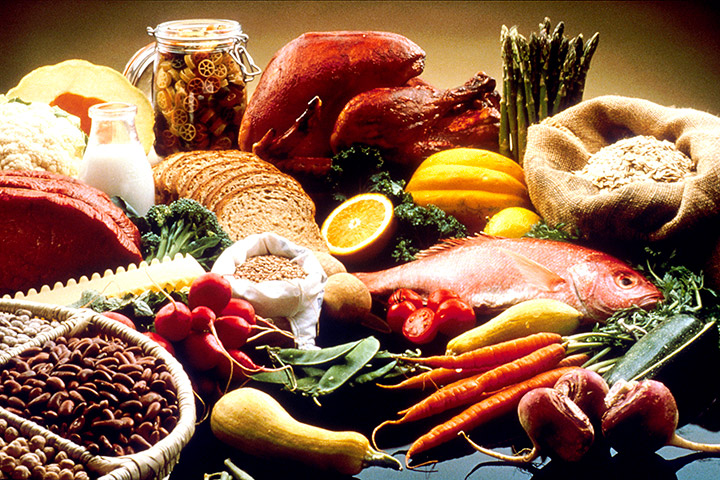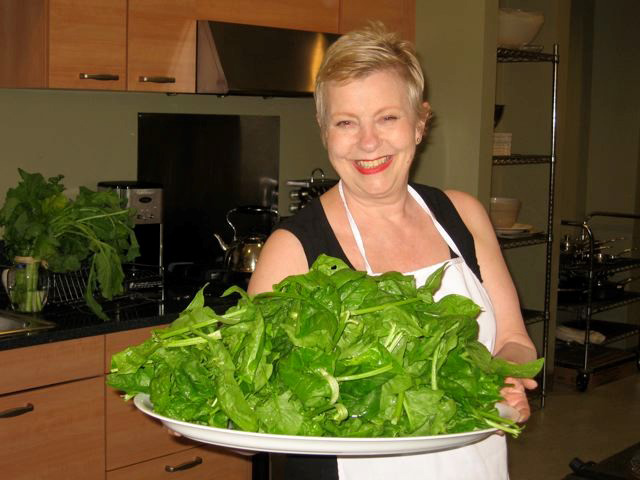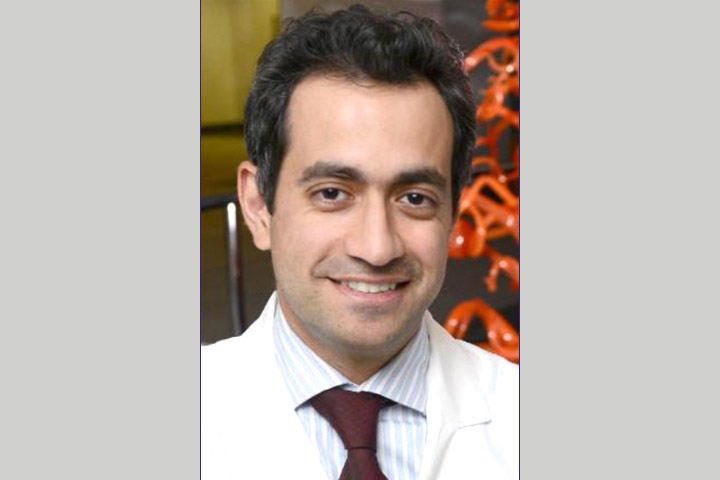Managing Your Diet
Learn more about what to eat and how to eat during treatment and after.
We know good nutrition is vital to your overall health, but it’s even more important when you have pancreatic cancer. That’s because the cancer disrupts your body’s ability to break down and absorb nutrients from the food you eat.
Our series of articles on nutrition provides a guide for what to eat, how to eat, and tips to help you get the most out of your food.

How Pancreatic Cancer Affects Nutrition
The pancreas is part of your digestive system, helping your body break down the food you eat by releasing enzymes. A healthy pancreas makes enough of these enzymes to aid in digestion. However, cancer of the pancreas can disrupt this process by limiting or completely blocking the amount of digestive enzymes your pancreas produces. When this happens, the body has trouble breaking down food, and you will absorb fewer nutrients from the food you eat. As a result, you might lose weight, as well as have stomach problems like bloating, gas, nausea, and changes to your stool. The location of the tumor can also affect your nutrition. Tumors in the tail of the pancreas may also press on your stomach.
Once you start treatment, the chemotherapy drugs may affect your eating habits, altering your sense of taste and causing nausea, vomiting, diarrhea, mouth sores, and loss of appetite.
So, what can you do?
Follow Best Practices
Even though eating during and after treatment can be challenging, our experts can help guide you through some best practices to get the most out of every meal. Here are tips to get you started.
- Eat small portions, but eat often. Portion control helps you limit unpleasant side effects like gas and bloating, which occur more often with larger servings. Modify your meals so that you feel better afterwards.
- Ramp up the protein. Fighting cancer increases your body’s protein demands because it needs the extra protein to help your immune system fight off illness. So try to include a good serving of protein with every meal.
- Keep it simple. Make it easier for your digestive system to break down your meals. Soups, smoothies, protein shakes, or chopped and cooked meats and vegetables require less effort to digest.

What to Eat—and What to Avoid—When You Have Pancreatic Cancer
The disease and treatment for pancreatic cancer affect the digestive system. Dietitian L.J. Amaral guides you to the best nutrition sources.

How to Eat with Pancreatic Cancer
What should I eat while in treatment? Oncology dietitian Maria Petzel provides eating strategies for pancreatic cancer patients.

Nutrition Myths Debunked
Does sugar really feed cancer? Is a keto diet better for cancer? Should cancer patients avoid fats? Dietitians L.J. Amaral and Jessica Harrison take on common nutrition myths.

Focus on Nutrition with The National Pancreas Foundation
Because they focus on all diseases of the pancreas, the National Pancreas Foundation created a cookbook to guide patients on how to eat.

How to Eat After a Whipple Procedure
Cancer survivor Ann Ogden helps patients learn to cook food that would help them through treatment and recovery after a Whipple procedure.
Use Digestive Enzymes
Pancreatic cancer hinders the body’s ability to produce the digestive enzymes that help you absorb the nutrients from your food. But there are medications and supplements that can help replace the lost enzymes.

Exploring Alternatives to Creon for Pancreatic Enzyme Replacement Therapy
Oncology dietitian Meghan Laszlo explains how pancreatic enzyme replacement drug Creon works and available alternatives.

The Whys and Hows of Pancreatic Enzyme Replacement Therapy
Pancreatic enzyme replacement therapy (PERT), is an important part of treatment that is often not properly utilized, but a new tool can help.

Pancreatic Enzymes Explained
GI cancer specialist Dr. Shaalan Beg and dietician Shelli Hardy explain how pancreatic enzymes work in digestion and why pancreatic cancer patients may need them.
Talk to a Dietitian
A dietitian can tailor an approach to nutrition that fits your individual needs. Look for an oncology dietitian, who is trained in the needs of cancer patients. Keep in mind that the best plan is always the plan that works best for you.
Along with talking to a dietitian, you can use specialty cookbooks. The National Pancreas Foundation serves all patients with pancreas diseases, including pancreatic cancer. They have created cookbooks that can help patients with diet and nutrition.

Diagnosed with Pancreatic Cancer? Partner with a Registered Dietitian
Audrey Caspar-Clark, a registered dietitian specializing in pancreatic cancer, provides tips on finding the right nutritional help.

The Key Role of an Oncology Dietitian in Pancreatic Cancer Treatment
Not sure what to eat during treatment? Oncology dietitian Antonella Apicella explains how to tailor an eating plan to your needs.

Eating Right Can Help Your Pancreatic Cancer Fight
Pancreatic cancer patients can potentially combat side effects of treatment through a proper diet, according to advice from oncology dietitian Maria Petzel.